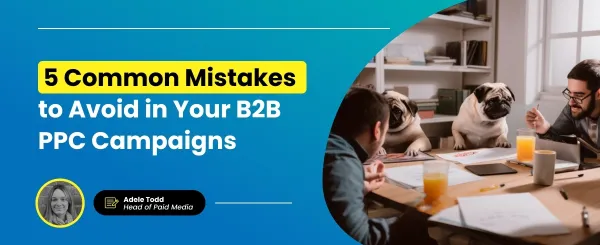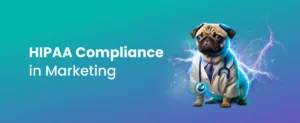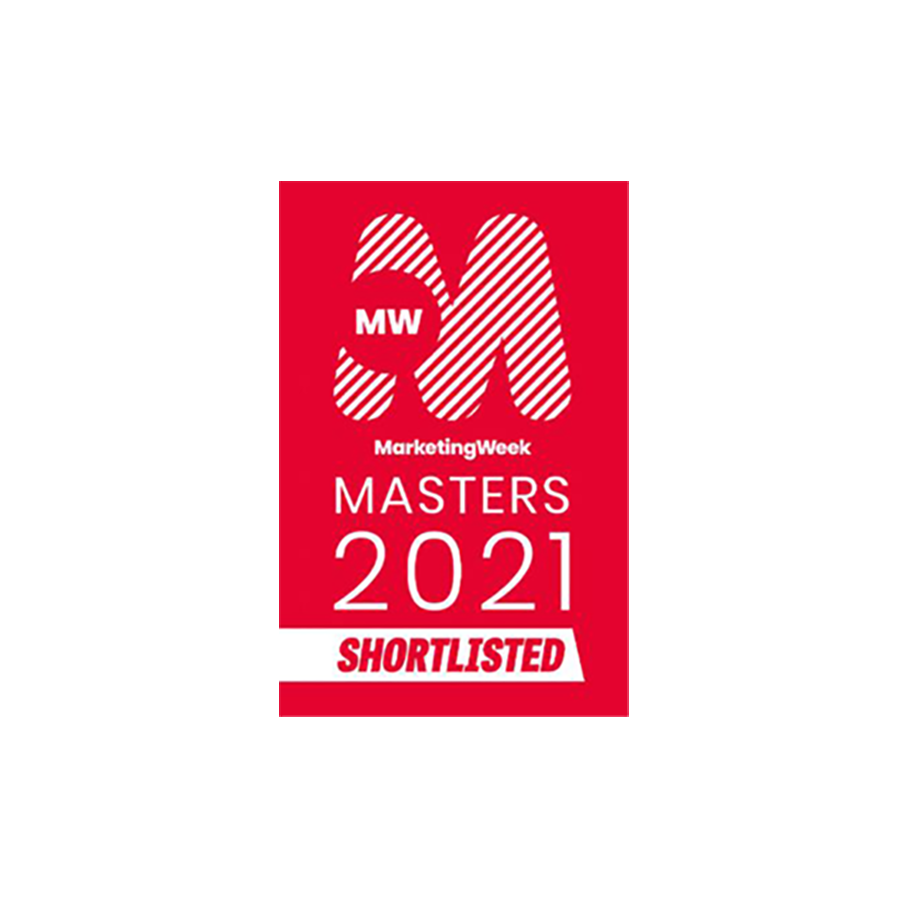In the ever-evolving realm of digital marketing, Pay-Per-Click (PPC) campaigns have become a staple for B2B companies looking to boost their online presence and generate quality leads. However, even the most well-intentioned campaigns can fall prey to common pitfalls that hinder their effectiveness.
“Platforms have made it easy for anyone off the street to run a PPC campaign,” notes Adele Todd, the Head of Paid Media at Somebody Digital. “But running a good PPC campaign, one that drives real results for a client, requires skill and understanding.”
Part of running a truly effective PPC campaign means avoiding certain common mistakes. Recognising and rectifying these is crucial to ensuring ultimate ROI for your client or business. Adele sits down to discuss the top 5 mistakes to avoid when compiling a PPC campaign.
1. Keyword Selection: A Foundation for Success
The cornerstone of any successful PPC campaign lies in the keywords you choose. Adele underscores the significance of conducting thorough keyword research to avoid the pitfall of irrelevant clicks and wasted budget. “Opt for a mix of industry-specific keywords and long-tail variations,” she advises. Neglecting long-tail keywords, which have higher relevance and conversion potential, can result in missed opportunities to engage with the right audience.
While it takes time to compile a comprehensive keyword list for your campaign, it can pay off in the long run. Leveraging the available tools for keyword research, including Google’s Keyword planner, can make all the difference between success and failure.
2. Crafting Compelling Ad Messaging: Tailoring to B2B Audiences
Using paid media inside the B2B space is a powerful way to talk to your audience, which means the messaging forms a critical part of reaching potential customers. Much like the old elevator pitch, online platforms provide a short window period in which to grab a potential’s attention.
Adele stresses the importance of steering clear from vague or consumer-oriented ad copy, especially when communicating with a discerning B2B audience that is seeking solutions to specific business challenges.
“Speak directly to the unique value your B2B offering brings to the table,” she says. Your ad messaging should resonate with the audience’s needs and position your business as the go-to solution provider.
3. Streamlined Landing Pages: Guiding the Way
Landing pages are where your audience converts from prospects to leads. Adele urges businesses to avoid overwhelming B2B buyers with landing pages that are either too complex or too generic. “Your landing page should be clear, concise, and professional, aligning with the ad’s intent,” she notes. A smooth user experience and well-structured information are key factors in encouraging conversions.
Aligning with an ad’s intent is crucial, not just for conversions, but for the success of your ad campaign as a whole. Platforms like Google and Facebook are known to punish ad campaigns that are perceived to have mismatched or misleading content.
4. Staying Ahead of Trends: A Constant Requirement
“Change is the only constant in digital marketing,” says Adele. Failing to adapt to shifting algorithms, evolving audience behaviour, or new platform features can render your campaigns outdated.
“Over and over again, we’ve seen that a key success factor in a client’s campaign is simply regular monitoring and optimisation,” she notes. Paid media is not designed to be left to fly alone. “If you ‘set it and forget it’, you might find yourself disappointed in the results of your campaign.”
5. Accurate Conversion Tracking: Measuring True Success
Conversion tracking is the bedrock of measuring the actual impact of your ad spend on your business’s bottom line. Adele emphasises, “Accurate tracking allows you to gauge the effectiveness of your campaigns in terms of leads generated, inquiries, and sales.” These are crucial metrics for any business to see how effective their campaign really is and enables them to measure the true value of their paid media initiatives.
Utilise tools like Google Analytics to ensure you’re attributing conversions correctly and making data-driven decisions.
Maximising ROI Through Best Practices
“By embracing best practices in your B2B PPC campaigns, you can position yourself for success,” notes Adele. Leveraging a well-rounded approach to keyword selection, crafting targeted ad messaging, optimising landing pages, staying abreast of industry trends, and implementing robust conversion tracking will enable you to maximise your return on investment and drive exceptional results for your business.
Of course, when in doubt, it helps to partner with experts, like Somebody Digital, who can help take your PPC efforts to new heights.





















